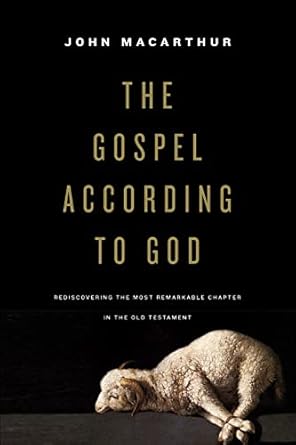A Brief Book Notice from Books At a Glance
This book is MacArthur’s extended exposition of Isaiah 52:13-53:12.
Table of Contents
Introduction: The Whole Story of Salvation in Prophecy
1 The Most Remarkable Chapter in the Old Testament
2 Of Whom Does the Prophet Say This?
3 Astonishing!
4 What If Some Did Not Believe?
5 The Substituted Servant
6 The Silent Servant
7 The Suffering and Exalted Servant
8 The Sin-Bearing Servant
9 Here I Am! Send Me
10 Judah’s Demise
Appendix: The Man of Sorrows: A Sermon by Charles Spurgeon
Selected Quotes
- [This] brief but pivotal portion of Isaiah is a crystal-clear prophecy about the ministry, death, resurrection, and coronation of the Messiah, written more than seven centuries before he came. It is the gospel according to God. (24)
- These three verses (Isaiah 53:4-6) may well be the most magnificent verses in the entire Old Testament. (92)
- The very essence of true faith in Christ is trusting that the vicarious, substitutionary sacrifice Jesus offered to God through the cross is a full and sufficient payment for all our sins. (111)
- Here, as the servant of the Lord silently, without protest, accepted both the unrighteous judgment of men and the righteous judgment of God on behalf of sinners, Old Testament soteriology reaches its apex. (119)
- Israel collectively misjudged Jesus. They believed he was struck dead by God for sins and blasphemies, as his accusers claimed. In reality, he was stricken by God—but for the transgressions of his people, to bring salvation to both Jews and Gentiles. (126)
- Isaiah 53 answers the most vitally important question that any fallen human being could ever ask: How can a sinner be fully reconciled to God? (145)
- Every controverted doctrine that is essential for understanding the biblical doctrine of atonement is there: propitiation through the death of an innocent victim; salvation by grace through faith alone; justification through the imputation of righteousness; and atonement by penal substitution. (146)
